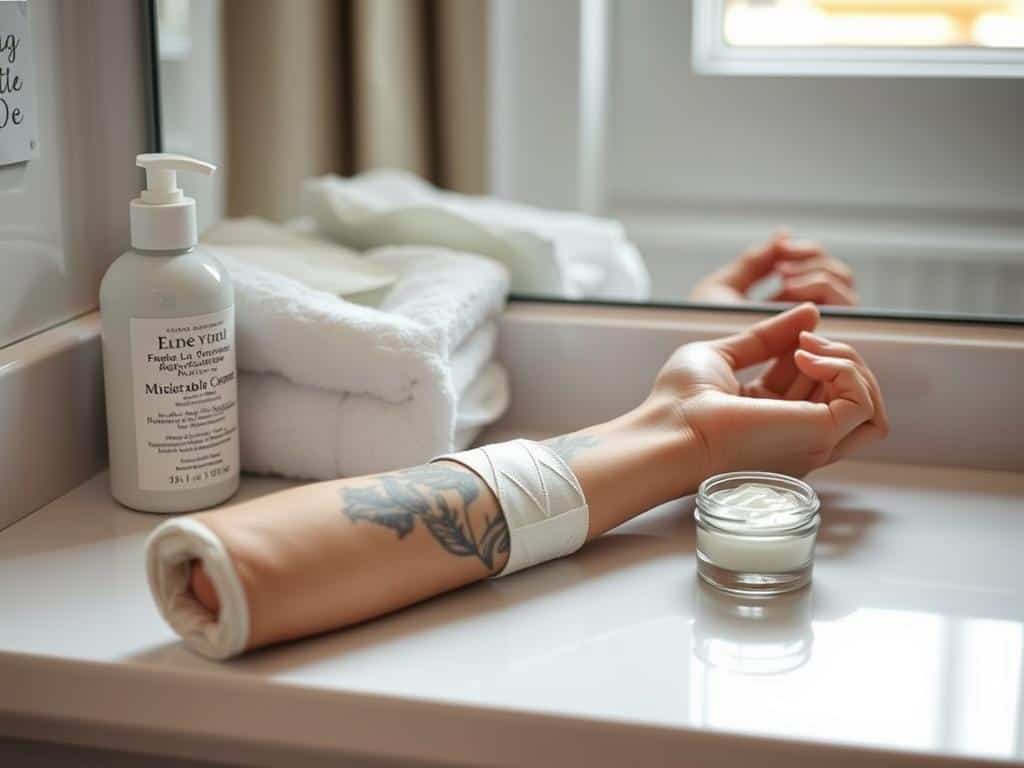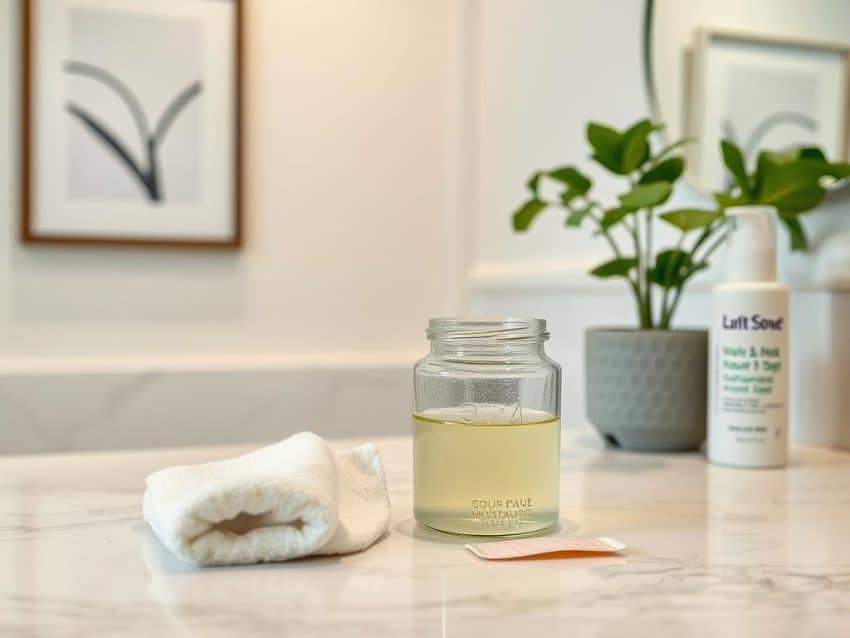Finding time for personal moments in a fast-paced world can be tough. I remember the thrill of getting a tattoo, feeling the machine on my skin. It was a piece of art I’d carry forever. Yet, life’s chaos often made me wonder if I could care for my new tattoo right.
Proper aftercare is key to keeping tattoos vibrant and healthy, even when life gets busy. Nearly one-third of American adults have tattoos, making good aftercare even more important.
In this article, I’ll share how to care for your tattoo without letting it slow you down. Whether you’re busy at work or with family, I’ve got tips to keep your tattoo looking great with little effort.
Key Takeaways
- Proper tattoo aftercare is vital for preventing infections and ensuring long-lasting ink.
- The healing process can take roughly 3 to 4 weeks and consists of several stages.
- Regular moisturization and sun protection are key to maintaining the vibrancy of your tattoo.
- Quick aftercare routines can be adapted to fit a busy lifestyle without compromising quality.
- Choosing the right aftercare products, such as Aquaphor and unscented lotions, is essential.
- Avoiding submerging the tattoo and maintaining cleanliness are critical in the healing phase.
The Importance of Tattoo Aftercare
After getting a tattoo, it’s key to focus on proper care. The first moments after getting inked set the stage for healing and appearance. Without good care, infections and faded colors can happen, affecting looks and health.
Why Proper Aftercare is Essential
Good tattoo care prevents infections and keeps colors bright. Tattoos are open wounds, so they’re at risk for bacteria. Neglecting care can lead to infections or allergic reactions, like with red ink.
I always keep the tattoo clean and moisturized. This helps avoid these problems.
How It Affects Healing Time and Tattoo Quality
Tattoos usually heal in two weeks, but size and placement can change this. A good aftercare routine speeds up healing. It’s important to wash the area twice a day and avoid direct water.
Using a mild moisturizer helps keep the tattoo looking great. Skipping these steps can make healing take longer and affect the tattoo’s quality. Following an aftercare routine is essential.
Tattoo Aftercare and Lifestyle: Tips for Busy Individuals
Adding a tattoo aftercare routine to a busy life can be tough. But, with smart planning, it’s doable. I make sure to care for my tattoo by setting reminders on my phone. This keeps me on track with my aftercare.
Create a Convenient Aftercare Routine
My tattoo aftercare routine is simple. I wash the tattoo area once or twice a day. I also moisturize it two to three times a day for the first few weeks. This keeps my tattoo healthy and speeds up healing.
Wearing loose clothes helps too. It prevents irritation from fabric rubbing against the tattoo.
Utilize Quick Products for Aftercare
Choosing the right aftercare products is key. At first, I use Aquaphor for its hydration. Later, I switch to Lubriderm for a lighter feel. This fits easily into my daily routine, saving me time.
Scheduling Time for Tattoo Maintenance
Having a tattoo maintenance schedule is helpful. I set aside times for tasks like applying sunscreen and checking for irritation. This keeps my tattoo looking great while I manage my busy life.

Conclusion
Proper tattoo aftercare is key for keeping your ink looking great, even when life gets busy. By setting up a simple aftercare routine, you can protect your skin and make your tattoo last longer. Remember, ignoring aftercare can cause your tattoo to fade in about 70% of cases.
Using quick and effective aftercare products makes it easier to care for your tattoo. Studies show that good aftercare can cut the risk of infection by up to 50%. Keeping your tattoo covered for the first 24-48 hours and using quality aftercare products are important steps.
Even with a packed schedule, you can manage tattoo care well. By choosing the right aftercare and following the recommended steps, your tattoos will stay vibrant and beautiful for years. This shows that caring for tattoos doesn’t have to be hard.
